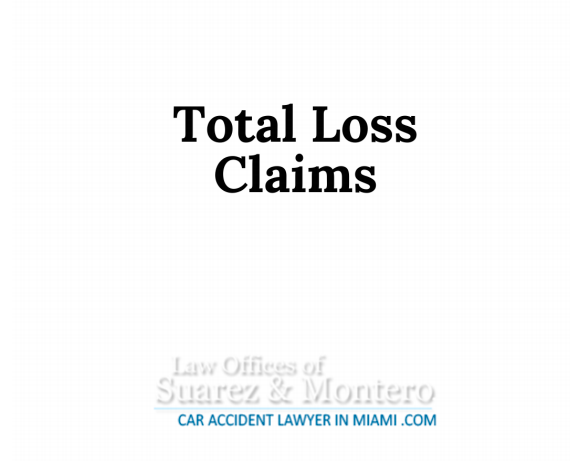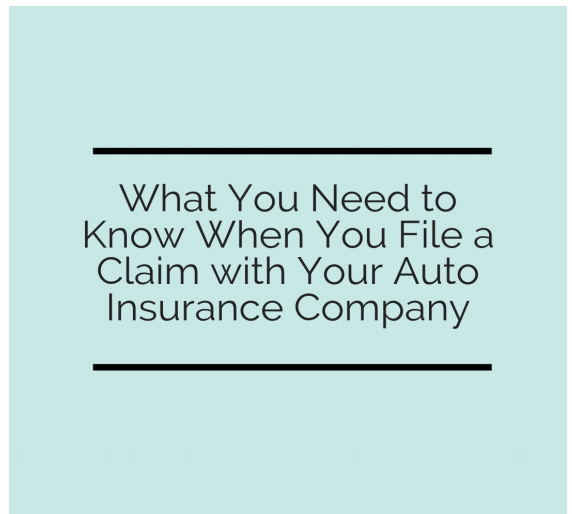
Total Loss Claims
When someone’s vehicle gets into an accident and then is deemed a total loss, a lot of people complain about how the total losses are handled. Many clients believe that the process is unfair. In this blog post, I will give you some tips to help you get through the total loss claims process.
What is a Total Loss?
When your vehicle is involved in an accident and the cost to repair your vehicle is a certain percentage of the value of your vehicle, it may be deemed to be a total loss. When this happens, your insurance company has a few options depending on the state in which you live. Insurance companies use different methods to determine if your car is a total loss. The first way is by using a total loss formula which takes the cost of your vehicle repairs plus the salvage value or the value that the insurance company would get when they sell your vehicle for salvage and adds the two values together. If that equals or exceeds your actual cash value or what your vehicle is worth, your vehicle is a total loss. Here’s an example: if your vehicle repairs cost $4000, the salvage value is $800, and the actual cash value is $5000, then your vehicle is not a total loss. On the contrary, if your vehicle repair costs $4500 and the salvage value is $800 then your vehicle is a total loss. The second method for calculating total loss is the percentage method. This method is used by most insurance companies in Florida. The percentage method simply takes the repair cost and if it is a certain percentage of your actual cash value then your vehicle is a total loss. Each state that uses the percentage method may require a different percentage when determining whether your vehicle is a total loss. If your vehicle is registered in a state like Florida where they use the percentage method, the percentage threshold is 75%. If your vehicle repairs come in at $4000 and the actual cash value of your vehicle is $5000, your vehicle would be a total loss. This is since your repairs meet or exceed the percentage threshold of 75%. Now, let’s say that your repairs come in at $3000 and the actual cash value for your vehicle is $5000, your vehicle would not be considered a total loss. This is because your repair costs would not need meet or exceed the percentage threshold. There are some instances where your vehicle is going to be deemed a total loss due to state regulations. The most common example is when your vehicle has been flooded or submerged in water or is trapped in a mudslide. When this happens, your insurance company will automatically deem your vehicle a total loss and use your comprehensive coverage to settle the claim.
Contact our Accident Attorney in Miami Today!
Car accidents are a huge issue for drivers in South Florida. If you or a loved one has been injured in a car accident in South Florida due to another driver’s negligence, the car accident attorneys at Suarez & Montero are here to help you get the compensation you rightly deserve. The Law Offices of Suarez & Montero Car Accident Attorneys is a personal injury law firm with locations in Miami and Broward. Personal injury law is constantly changing; thus, it is important to pick a lawyer who is up to date with these changes and specializes in handling personal injury cases only. Many attorneys specialize in other practice areas such as bankruptcy or criminal law and handle personal injury cases on the side. Unlike other firms that handle cases in other areas of law in addition to their personal injury section, our firm is 100% dedicated to helping victims in personal injury cases and has been doing so for over 19 years. If you or someone you love has been involved in an accident, contact us today for a free consultation.
We serve clients throughout Florida including those in the following areas:
Miami-Dade: Aventura, Coral Gables, Doral, Fontainebleau, Hialeah, Homestead, Kendall, Miami, Miami Beach, Miami Lakes, North Miami, Tamiami, and Westchester.
Broward: Fort Lauderdale, Hallandale Beach, Hollywood, Pembroke Pines, and Weston; and Palm Beach County including Boca Raton, Lake Worth, and West Palm Beach.





